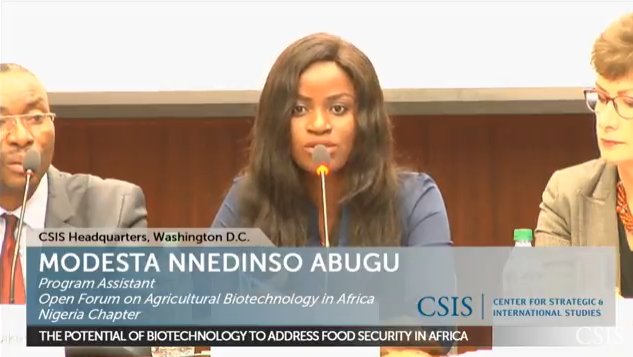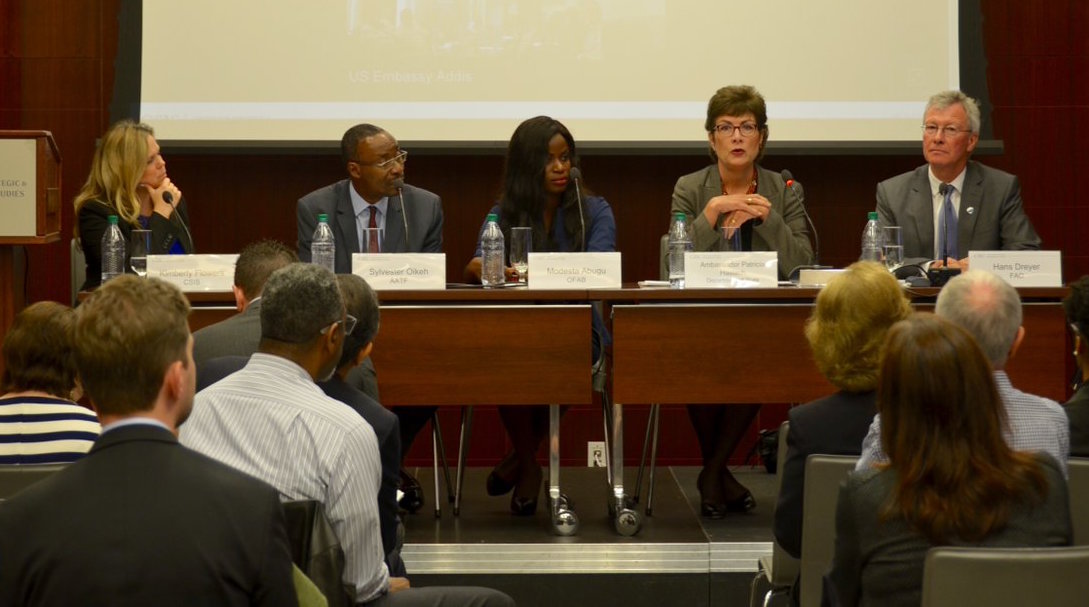
Nigeria will be the world s third most populous country by 2050, according to the United Nations projections for West Africa. As a Nigerian, I don t know if this news should make me happy or sad, but as far as agriculture and food security is concerned, it is going to be a serious challenge to feed ourselves in the future if new agricultural technologies are not adopted and existing ones improved.
Suggesting solutions to our food insecurity challenge was one of my objectives in speaking at a recent Wasington, D.C., panel event on the potential of agricultural biotechnology for food security in Africa. The event was organized by the Centre for Strategic and International Studies (CSIS) in collaboration with Crop Life International and the US Department of State’s Office of Agricultural Policy.
The room was filled with participants representing various organizations working to promote agriculture in developing countries, including the USDA, USAID, Crop Life, Cornell University and CSIS, as well as representatives from the US Embassies of Nigeria, Ethiopia and Kenya. The other panelists were Hans Dreyer, Food and Agriculture Organization of the UN; former Ethiopian Ambassador Patricia Haslach; and Dr. Sylvester Oikeh of the African Agricultural Technology Foundation. I was representing the Open Forum on Agricultural Biotechnology, Nigeria.

Discussions centered around how crop biotechnology can contribute to food security in Africa. Dr. Oikeh explained this using the WEMA project which seeks to confer drought-tolerance and insect protection on maize. Dreyer addressed the perspectives of the FAO, stating that it sees biotechnology as having a wide range of applications that undoubtedly have a role in improving food security in the world. Ambassador Haslach outlined the agricultural problems the world is facing, including the role of science, technology and innovation in addressing most of these challenges. My contributions centered on the role science plays in decision-making, including the need for advocacy and communication on agricultural biotech.
I elaborated on the potential of biotechnology to boost the Nigerian economy, such as helping to increase exchange earning, productivity and the gross domestic product, while improving crop resilience during periods of low rainfall and reducing the need for farm labor. Furthermore, the role of youths in biotechnology adoption cannot be overemphasized. This event afforded me the opportunity to speak on ways to engage youths in ag biotech adoption through policy processes, advocacy and information dissemination, as well as getting involved in research work to enhance crop adoption through field trials and productivity demonstrations.
Overall, a combination all possible technologies, especially crop biotechnology, is what Nigeria needs as the problems of pest and insect attacks, diseases, climate change and malnutrition continue to affect all agricultural zones in Nigeria.
View the full event video here.
Modesta Nnedinso Abugu is a 2015 Cornell Alliance for Science Global Leadership Fellow and a program assistant with OFAB in Nigeria.
